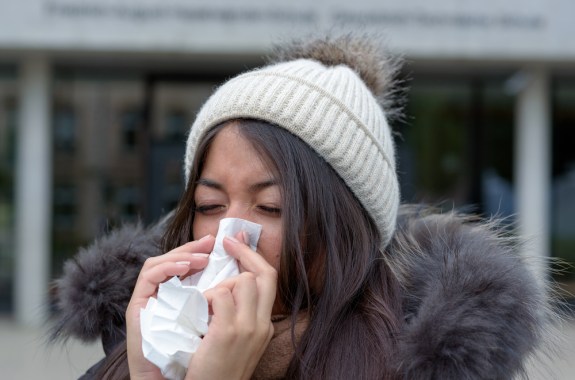Radio
Listen to Science Friday live on Fridays from 2-4 p.m. ET
April 4, 2025
Food allergies are on the rise. For kids with less severe peanut allergies, one potential treatment could be found in the grocery aisle. Plus, what happens when AI moves beyond convincing chatbots and custom image generators to something that matches—or outperforms—humans? And, several companies are competing for NASA contracts to build commercial space stations.
10:22
Beijing Grapples with Record Air Pollution
Severe smog is raising concerns about the cost of China’s rapid industrialization.
23:52
Edward Tufte Wants You to See Better
The “Galileo of graphics” discusses his latest project: helping people to see information through “fresh” eyes.
11:59
Dementia Takes the Stage in ‘The Other Place’
Laurie Metcalf is a scientist suffering from the dementia she studies in the play ‘The Other Place.’
17:35
How Do You Fend Off the Flu?
Aside from getting the flu shot, how do you outsmart the wily flu virus? Hoard hand sanitizer? Dodge door knobs? Or quietly slink away from a coughing commuter?
17:01
Colossal Quasar Clump Too Huge to Exist, in Theory
Astronomers have discovered a clump of 73 quasars spanning four billion light years at its widest point — that’s like 40,000 Milky Way galaxies lined end-to-end.
12:04
Inventors Design Lamp Powered Entirely by Gravity
The gravity-powered device uses a weight to generate up to 30 minutes of light as it descends.
16:43
Simulating the Red Planet, on the Pale Blue Dot
What’s it like to live—and cook—on Mars? To find out, researchers are simulating Mars missions in Russia and on the slopes of a Hawaiian volcano.
29:43
The Fallacies of Fat
In “Fat Chance,” obesity doc Robert Lustig deconstructs the mythology on fat and exercise.
7:00
Getting a Handle on Why Fingers Wrinkle
Only a handful of researchers (ever) have looked into why fingers get pruney after a water bath.
4:14
How E-Waste Is Becoming a Big, Global Problem
More than 2.5 million tons of electronic waste is produced each year in the U.S.

